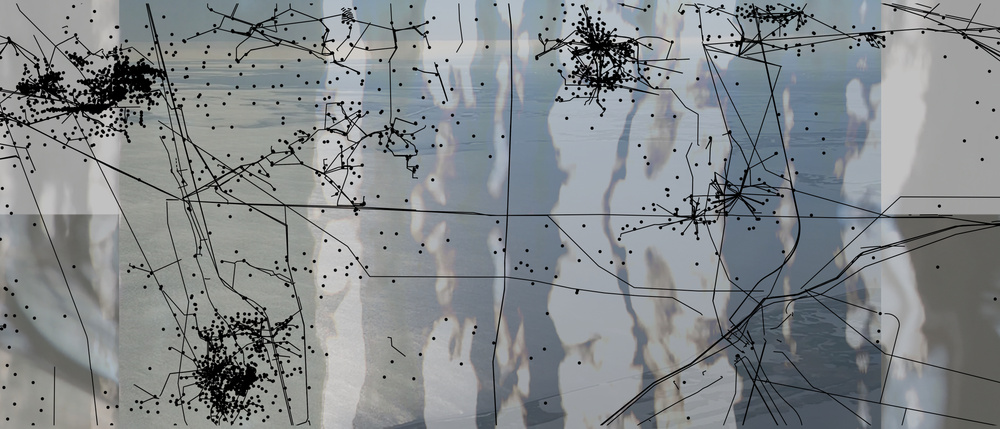Imani Jacqueline Brown

All along the Mississippi River, across a 150-mile region known to industry as “Petrochemical Corridor,” formerly known as “Plantation Country,” and nicknamed “Cancer Alley,” hundreds of groves of trees interrupt a seamless tapestry of petrochemical-plantations. Reading these terrestrial inscriptions helps to fill the gaps in Black histories and cultures erased and suppressed along the continuum of extractivism, which spans from colonialism and slavery to fossil fuel production.
Sometimes, vegetation traces the ruins of historical slave quarter and sugar factory complexes. Sometimes, magnolia and willow trees mark the perimeters of antebellum Black burial grounds. Partly nodes of the primordial forest, partly carefully stewarded ecosystems inhabited by ancestral spirits, these burial groves are manifestations of African ecological cosmologies seeded in the “new world.” Staring up through the canopies of these groves, one senses the compression time and space. From here, we can trace tethers of an ecological diaspora that constellates peoples and worldviews on all sides of the Atlantic Ocean.
Through the lens opened in Louisiana’s Black burial groves, Imani’s current body of research investigates ecological relations between humans, plants and trees, fungi, birds, and whales, imagining contemporary trans-Atlantic internationalism that grows from the grounds of multigenerational, multispecies, multidimensional praxes of resistance to extractivism.


